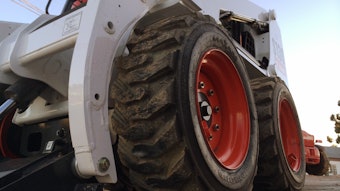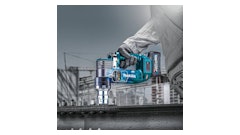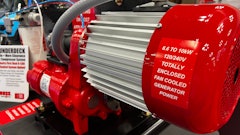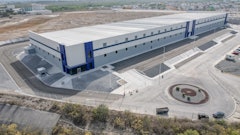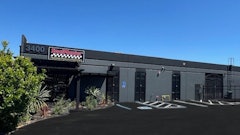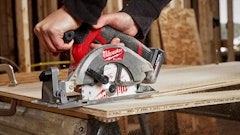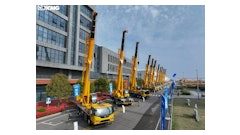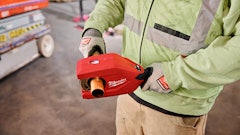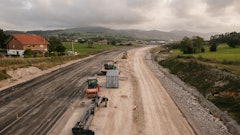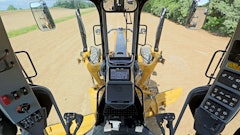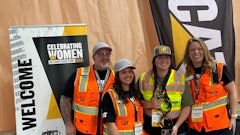
At 600 ft. long and 150 ft. wide, the Grand Casino Biloxi in Biloxi, MS, was almost exactly the size of two football fields positioned end to end. The massive facility, which sat on water atop six barges, was pushed nearly a mile inland across U.S. Highway 90 — a stark example of the incredibly destructive force delivered by Hurricane Katrina as it hit the city. The Grand's fate was representative of the damage experienced by other gambling barges in Biloxi's Casino Row.
The situation wasn't any better for the rest of the community. Extensive damage to buildings, homes, casino hotels and infrastructure had effectively shut down the city and its economy, which depends heavily on tourist dollars to survive.
However, the community's survival instinct quickly kicked in. As the renewal process began, many companies retained their hotel and casino property, while others were sold to new ownership. In both cases, the decision was made, almost universally, to rebuild even bigger.
Demolishing damaged structures
The Grand Casino Biloxi was acquired by Harrah's Entertainment in June 2005, but a prior proposal to improve and rename the establishment was derailed by the storm. In early 2006, Harrah's purchased the Casino Magic Biloxi next door and launched plans to build a destination casino and hotel on the combined site. However, before the new resort could go up, the damaged structures had to come down.
Harrah's awarded Cherry Demolition a $3 million project to remove all of the concrete and existing buildings from the Grand's 17-acre campus. The contractor quickly found itself not just tearing down buildings, but also filling a noticeable material void in the Mississippi road construction industry.
"All the flatwork, beams and clean concrete that we take from the site goes through two separate crushing units so it can be used as road aggregate or base rock," says Robert Cantrell, job superintendent for Cherry Demolition. "The Gulf Coast has had a significant rock shortage for quite some time, but for whatever reason they had never really recycled this type of material. There are a lot of big players in the demolition industry in Biloxi right now, and fortunately everyone saw the opportunity to make use of this concrete."
The cleanup operation began in March 2006 with the assignment to take down two high-rise parking garages, a performing arts theater and a porte-cochere that had served as an entryway to the casino barge. Also on the property was the 12-story, 550-room Grand Casino Island View Hotel, which Cherry brought down via implosion in May 2006.
The parking garages proved to be more of a challenge. "The parking structures were built using a new post-tension technology with reinforced concrete and shielded cable," Cantrell explains. "The buildings are still fairly new – only about 10 years old. Even so, we didn't anticipate the number of cables in the concrete and the tensile strength of the entire structure. When dealing with older construction, you can sometimes knock out one corner and basically collapse the whole building. But not this one — it was very well built."
Cherry used two excavators with hydraulic breakers — including an Atlas Copco MB 1700 hydraulic breaker mounted on a Komatsu PC 400 — to take apart the concrete columns of the parking garages. "The strength of the concrete columns dictated using breakers," says Cantrell. "You can get a lot of production out of a breaker in a situation like this because the operator can just hammer away at the material without needing too much finesse. And this breaker has always been good to us — low maintenance, high impact and it gets the job done."
The MB 1700 features the AutoControl monitoring system, which self-adjusts the breaker's power output to match operating conditions. In light or unstable material, the breaker is limited to half power. When harder material is encountered, it delivers its full available impact energy.
This system was especially helpful as the breaker reduced large pieces of concrete rubble to smaller portions that could be handled by the crusher. With thousands of concrete chunks scattered throughout the demolition area, the efficiency and control provided were essential to keeping the project on schedule.
With the debris hauled off, the concrete driveway slabs and other foundational materials were next to be removed. Because the soil along most of the Biloxi coast is not of load bearing density, the original hotel architects had to place the structures on sections of flatwork supported by pile foundations. These long, slender columns transfer the load to soil or rock with high bearing capacity deep below the surface. Concrete pile caps placed atop the piles help facilitate the load transfer.
"The breaker will be instrumental in separating the pile caps from the piles," says Cantrell. "There's a chance with how muddy and rotten the ground is here that our excavators could get stuck. But we have to break those caps apart, and the breaker is really the only tool we can use to get it done."
Once the job is completed in September 2006, no concrete will be left on site. "It will be all dirt out here when we leave," says Cantrell.
Making progress
Cantrell is pleased with the progress Cherry has made in spite of difficult logistical challenges. He also notes that Biloxi itself has accomplished a lot since Katrina. Eighty percent of the traffic lights are operational, and the infrastructure is almost completely intact, with water, sewer and power lines all available.
"Biloxi has recovered tremendously, but there's still work left to do," says Cantrell. "Casino Row is certainly building back more rapidly than a lot of the residential areas. Everyone is doing what they can to re-open and draw the public in, because that tourist revenue is really what's going to bring the city back."
The state of Mississippi has helped by changing a law that previously kept gambling off Mississippi soil. New legislation now gives the companies the option (which most are taking) of building their casinos on land along the Gulf of Mexico.
For its part, Cherry is making a difference wherever it can. "There are bits and pieces of the Grand Casino spread throughout the Gulf Coast," says Cantrell. "The hotel was full of glass chandeliers, tables and chairs and even some gymnasium equipment. We got in touch with several local charities to give away as much as we could, rather than simply junking everything."




